Michael Steinberg on Creative Nonfiction

Michael Steinberg, founding editor of Fourth Genre.
William Meiners: I suppose all writing is some sort of “truth-telling,” if only to attempt to write a story, poem, or play that smacks of the truth. What drew you specifically to telling true stories?
Michael Steinberg: Although in my personal essays and memoirs I do use research and reportage, I don’t write “true stories.” Let me explain that. I’m one of many personal essayists that use our experiences, our lives, as raw material for finding out what fiction writers call discovering “what we didn’t know we knew.” I think this process of exploration and discovery, in other words, writing out of a sense of “not-knowing,” is closer to the ways in which writers of literary fiction and lyric poems create their works than it is to the ways in which investigative journalists approach their craft. Many of the debates about truth in nonfiction — especially those on literary memoir — generate from these two differing approaches. Yet, along with many others, I consider both to be literary works of creative nonfiction. In fact, some of the best work I’m reading right now combines the personal with reportage and research.
WM: You told my creative writing class that creative nonfiction might feel a little more natural to you. I think all writing is probably difficult. What’s the most difficult thing about writing in the “fourth genre”? What are the links to fiction and poetry?
MS: Yes, all writing is difficult, especially when it’s required, like a class assignment or a job-related project. But, in my case, I write because I feel compelled to do it. For years, I tried to express my deepest feelings and confusions in fiction or poetry. But over time I found that I could be my best self as writer when I wrote personal essays and memoirs. In those forms, I feel less inadequacy and doubt — less hesitant and self-conscious. More spontaneous, I’d say.
That freedom, that feeling of being in sync as a writer, parallels my own discovery, when, after decades of struggling to write fiction and poetry, I realized that writing personal essays and memoirs came more naturally to me than either of those forms did. It was the writing breakthrough I’d been struggling toward for much of my adult life.
As for links between literary nonfiction and fiction and poetry, I think there’s an important relationship, at least in my experience, between good literary nonfiction and good fiction and poetry — and I’ll also include drama in that mix as well. That’s because what’s most important, most necessary, in all forms of writing — literary, critical, and popular — is how skillfully the writer shapes the work. And that always comes down to matters of genre and craft.
Whether the work is narrative or lyric, all literary writers possess similar tool kits. For myself, a personal essayist, I’ve learned from good fiction writers how to use narrative and plot; and how to create three-dimensional, fully rounded characters, (in my case, mostly first person narrators), as well as how to craft dramatic scenes.
The heart of the playwright’s craft is dramatizing conflict through the use of dialogue and scene. Poets, especially those who write lyric poems, bring a freedom of imagination, an ear for rhythm and language, an eye for imagery, and a comfort and ease with metaphor. And literary journalists and cultural critics, we’ve increasingly found, are often combining research and reportage with more personal presence, and in some cases, more intimate voices.
